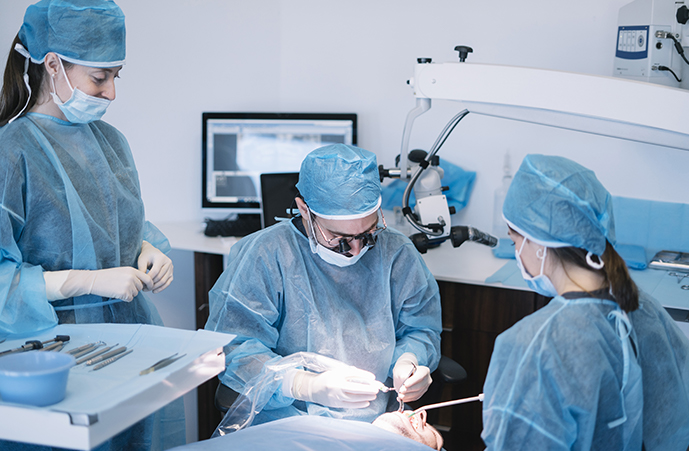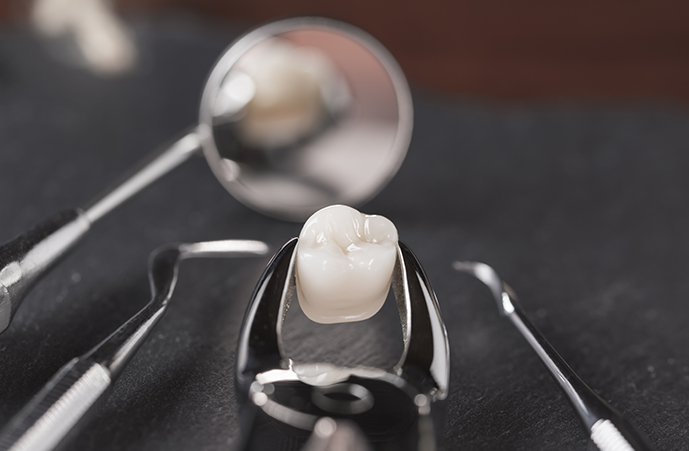Are your teeth or wisdom teeth causing pain? Are they misaligned or impacted? Sometimes damaged teeth can’t be saved and have to be extracted. At Rawson Dental Epping, we can safely and gently remove teeth – including wisdom teeth. You can be sure that whatever is best for your oral health will also be done to the highest standards.
Nowadays teeth are not extracted as frequently as they used to be in the past, because it is often better to repair the affected tooth in some way so it can be kept instead. It’s a matter of weighing up what is best long-term against the best appearance and functionality possible for you.
The problem with extracting teeth is that the remaining adjacent teeth tend to partially move or tilt into the gap created. This causes problems with your bite and makes it difficult to clean the shifted teeth thoroughly.
Teeth might still need to be extracted for the following reasons:
- Extensive damage of a tooth
If a tooth is severely damage by trauma or decay it might need to be extracted.
- Periodontal disease
Sometimes the result of periodontal disease, despite treatment, means that a tooth must be extracted. This happens because untreated periodontal disease can damage the tissues and bone surrounding its root, so the tooth sits loosely in its socket. [Periodontal disease is gum disease.] It begins in the first place because poor dental hygiene allows plaque/tartar to build up on the teeth which then inflames and infects the gums.
- Prevention of complications
Badly diseased teeth are removed to prevent complications like an abscess in a tooth or tooth root, or the spread of infection via the blood stream to other parts of the body.
- Cosmetic reasons
A tooth might be removed during orthodontic treatment, if it interferes with another tooth, or for improving the appearance of your teeth in general.
- A tooth without an opposing partner
A tooth without an opposing partner to chew against might be removed to improve chewing.
- A crack in the tooth root
A tooth with a cracked or split root might need to be removed, if its repair is impossible.

Together if we decide to extract a tooth, a series of steps will be followed.
An X-ray will be taken to help us plan how best to safely remove the tooth.
Anaesthesia
Even though modern anaesthetics are safe and very largely without risk, some people do have a serious reaction to one. If you have ever had a reaction to an anaesthetic, do tell your dentist.To remove your tooth, we can choose from:
- A local anaesthetic, which is injected into your gum to numb the area surrounding the tooth to be extracted after you have been given a tablet to help you relax.
- Conscious sedation with a local anaesthetic, in which you are medically sedated but are still awake, so you can cooperate with the dentist.
- General anaesthetic, in which you are sedated and asleep after having fasted for six hours [i.e. no food or drink].
Extraction
The extraction method used will depend on the type of tooth being extracted, its roots and its position in your jaw.
Extractions vary from being easy to difficult. Factors making them difficult include:
- Extensive decay or large fillings [restorations] in the tooth
- Adjacent teeth having crowns or large fillings
- An abnormal tooth position that affects adjacent teeth
- An unerupted or impacted tooth or one that is fused to the jaw bone
- A nerve very close to the tooth
- Roots that are large and curved or penetrate deep into jaw bone.
Difficult molars can be surgically divided into segments to ease their removal.
Dr Le and associates at Rawson Dental will not decide to extract one of your teeth, unless they have considered the situation very carefully and have thoroughly discussed it with you.

